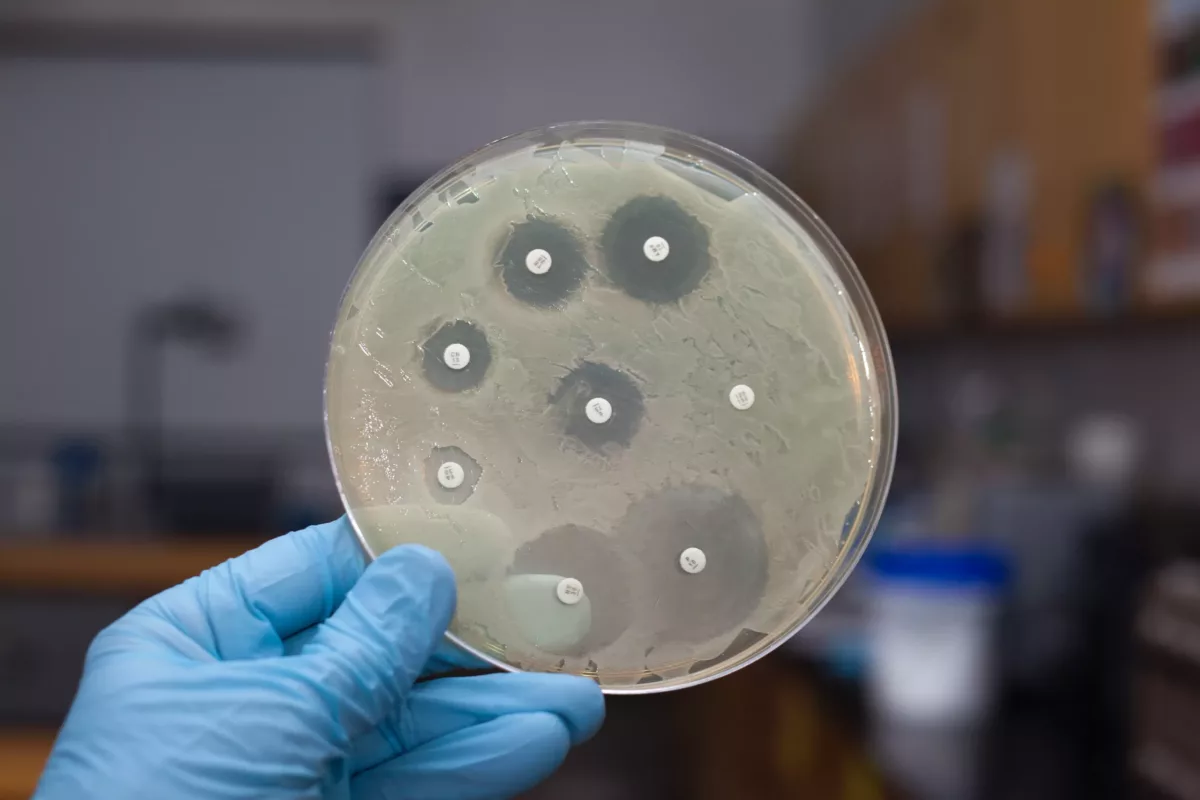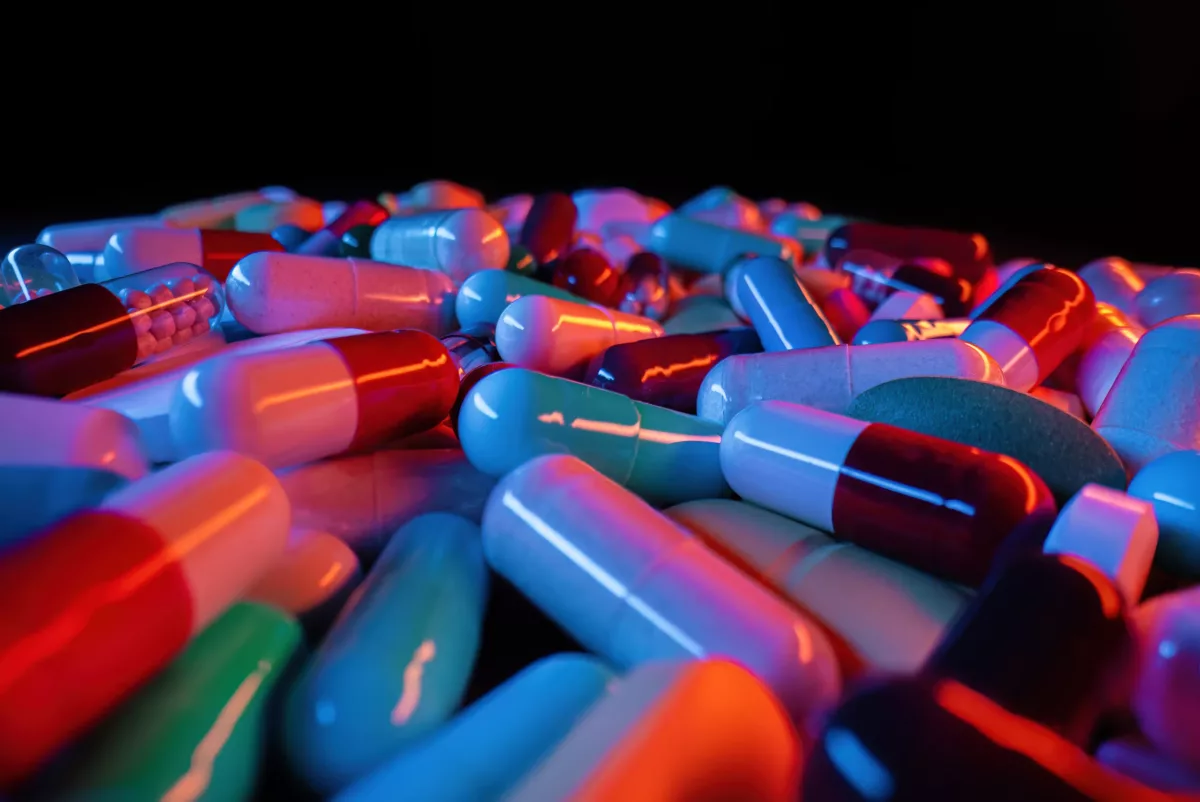An inflammation of the colon that is linked with the overgrowth of bacteria called Clostridioides difficile (previously called Clostridium difficile) or C. diff is called pseudomembranous colitis. Sometimes, this condition is called antibiotic-associated colitis or C. difficile colitis.
In most cases, overgrowth of this bacteria occurs after staying in a hospital or taking antibiotics. Usually, C. difficile infections are mostly diagnosed in people over 65 years old.
Symptoms
People with pseudomembranous colitis usually experience the following symptoms. For example:
- Nausea
- Dehydration
- Pus or mucus in the stool
- Fever
- Stomach tenderness, cramps, or pain
- Watery diarrhea
Commonly, pseudomembranous colitis symptoms appear within 2 days after beginning the treatment with antibiotics. Seek medical care immediately if any of the following symptoms occur. These include blood in the stool, stomach pain, fever, or severe diarrhea.
Causes
Generally, the colon contains multiple bacteria but is in a healthy balance. When you start treatment with antibiotics, this balance is disrupted. This colitis type often happens when the bacteria called C. difficile quickly outgrows. Therefore, when levels of this bacteria are high, it begins to produce a toxin that may cause colon damage.
While multiple antibiotics may cause pseudomembranous colitis, the following ones are more frequently linked with the disease. For example:
- Fluoroquinolones (such as Levofloxacin, Ciprofloxacin, and others)
- Penicillins (including Amoxicillin and Ampicillin)
- Clindamycin
- Cephalosporins (such as Cefixime)
Other Causes
There are other medicines that may cause a disruption in the balance of colon bacteria. These include chemotherapy drugs, antidepressants, oral steroids, sleeping pills, nonsteroidal anti-inflammatory drugs (NSAIDs), and others.
Moreover, some health conditions also may negatively affect the colon increasing the risk of developing pseudomembranous colitis. For example ulcerative colitis, Crohn’s disease, inflammatory bowel diseases, certain infections (such as diverticulitis), cancer, and others.
Spores of C. difficile are resistant to many disinfectants and may spread through direct contact with the infected person’s hands to other people. Nowadays, the cases of C. difficile increase even in people without risk factors. In such cases, the condition is called community-acquired C. difficile.
In addition, there is an aggressive form of C. difficile bacteria and it produces much more toxins than other strains do. It also may be more resistant to some medications and even people who have not been in hospitals or followed treatment with antibiotics may develop it.
Risk Factors
Healthcare professionals have identified some factors that could elevate your risk of developing pseudomembranous colitis. For example:
- Those who follow a treatment with antibiotics
- Hospital stay or nursing home
- Older age (this condition mostly occurs in people over 65 years old)
- Colon disease (including colorectal cancer, inflammatory bowel disease, or others)
- Weakened immunity
- Recent intestinal surgery
- Cancer treatments (such as chemotherapy)
What Are The Possible Complications of Pseudomembranous Colitis?
In most cases, the condition is successfully treated with medicines, but sometimes complications may occur even with early diagnosis and proper treatment. Check below some potential complications:
- Dehydration – People with severe diarrhea lose body fluids quite fast. Without plenty drinking of fluids and electrolytes, it may lead to this complication. It also may cause hypotension (low blood pressure).
- Kidney failure – Sometimes, dehydration may cause damage to the kidneys that may lead even to kidney failure.
- Toxic megacolon – This is a rare health condition that leads to the inability of the colon to get rid of stool and gas. Thereafter, the colon becomes significantly distended. Without treatment, it may lead to ruptures of the colon that allow the bacteria to enter the abdominal cavity. Toxic megacolon is considered a medical emergency and without immediate treatment, it may be fatal.
- Bowel perforation – It is also a rare complication that leads to a hole in the large intestine. Commonly, it happens due to damage for long periods of the colon lining or after the previous complication. Without immediate treatment, the bacteria may enter the abdominal cavity and cause a life-threatening condition called peritonitis.
- Death – Generally, C. difficile infections usually progress quite fast and without immediate treatment may lead even to death. However, it may occur even in mild or moderate cases.
How to Prevent Pseudomembranous Colitis?
Usually, hospitals and other healthcare facilities follow strict measures to prevent the spread of the bacteria. It is advised to remember a friend or family member in a hospital or nursing home to follow recommended precautions. These include:
- Regular handwashing – Good hygiene is very important for healthcare workers, especially when treating a person infected with C. difficile. Washing your hands with warm water and soap is the best choice because this bacteria may be resistant to alcohol-based hand sanitizers.
- Contact precautions – Hospitalized people with this infection have a separate room usually with a person with the same condition. Healthcare professionals and other visitors should wear disposable gloves and isolation gowns when entering the room.
- Clean thoroughly all surfaces with products that contain chlorine bleach to destroy C. difficile spores effectively.
- Medicines – Discuss with your healthcare professional about a prescription medicine if you think you need one (such as antivirals, antibiotics, and others).
Diagnosis
Physicians usually perform the following tests to diagnose pseudomembranous colitis. However, they can help exclude other diseases that cause similar symptoms. Examples include:
- Stool sample – It helps identify Clostridioides difficile infection in the large intestine.
- Blood tests – These tests are done to check for high levels of a certain type of white blood cells (leukocytosis). High levels of this blood cell indicate C. difficile infection.
- Colonoscopy or sigmoidoscopy – Both procedures involve a long and flexible tube with a lighted camera on the end to examine the inside of the large intestine for abnormalities linked with pseudomembranous colitis. These include yellow plaques (also called lesions), swelling, and others.
- Imaging tests – Healthcare professionals perform these tests to check for pseudomembranous colitis complications (including colon rupture, toxic megacolon, and others). For example CT (computerized tomography) scans or X-ray scans.
Treatment
Treatment for people with colitis type often involves the following ones. For example:
- Stop using antibiotics or other medications that cause symptoms. However, before starting or stopping any medicine, discuss it with your healthcare professional.
- People who continue to experience symptoms may need another antibiotic that is more likely to be effective against this infection. It usually allows the bacteria to grow back and restore the balance of colon bacteria. In most cases, doctors prescribe Vancomycin, Fidaxomicin, or Metronidazole.
- FMT (fecal microbial transplantation) – This treatment is usually recommended for people with severe pseudomembranous colitis. It involves a transplant of stool from a healthy donor to restore the bacteria balance in your large intestine. This stool is usually given through a nasogastric tube or a capsule that you swallow. This treatment also is effective for people with recurrent infections.
Commonly, the symptoms of pseudomembranous colitis improve within several days after you begin the treatment.
Recurrent Pseudomembranous Colitis Treatment
Generally, new strains of C. difficile occur naturally and it becomes challenging to treat the condition with every recurrence. In addition, with each recurrence, your risk of developing another one increases. Check below some treatments used in people with recurrent infection:
- Antibiotics – In such cases, you may need a second or third treatment with antibiotics. Moreover, the treatment may last much longer than the first time.
- Surgery – This is an effective option for people with organ failure, rupture of the colon, or inflammation of the abdominal wall (peritonitis). In most cases, surgeons perform a total or subtotal colectomy.
- Bezlotoxumab – This is a medicine approved by the FDA (Food and Drug Administration) to decrease the risk of recurrent C. difficile infection. This human monoclonal antibody Bezlotoxumab may be used in combination with antibiotics.
Frequently Asked Questions
What are the primary symptoms of pseudomembranous colitis?
These include:
- Fever
- Dehydration
- Nausea
- Vomiting
- Severe and watery diarrhea
- Abdominal (belly) cramps or pain
If any of the previous symptoms occur or any others that cause concerns, do not hesitate to see a doctor.
What is the main cause of pseudomembranous colitis?
This colitis type often happens due to overgrowth of C. difficile bacteria. Usually, it begins to grow quickly after staying in a hospital or antibiotic treatment.
What are the pseudomembranous colitis complications?
Life-threatening complications may occur even in people with mild or moderate pseudomembranous colitis, especially without treatment. For example:
- Kidney failure
- Dehydration
- Bowel perforation that may lead to peritonitis
- Toxic megacolon
- Death
Ask your healthcare provider if you have additional questions.




